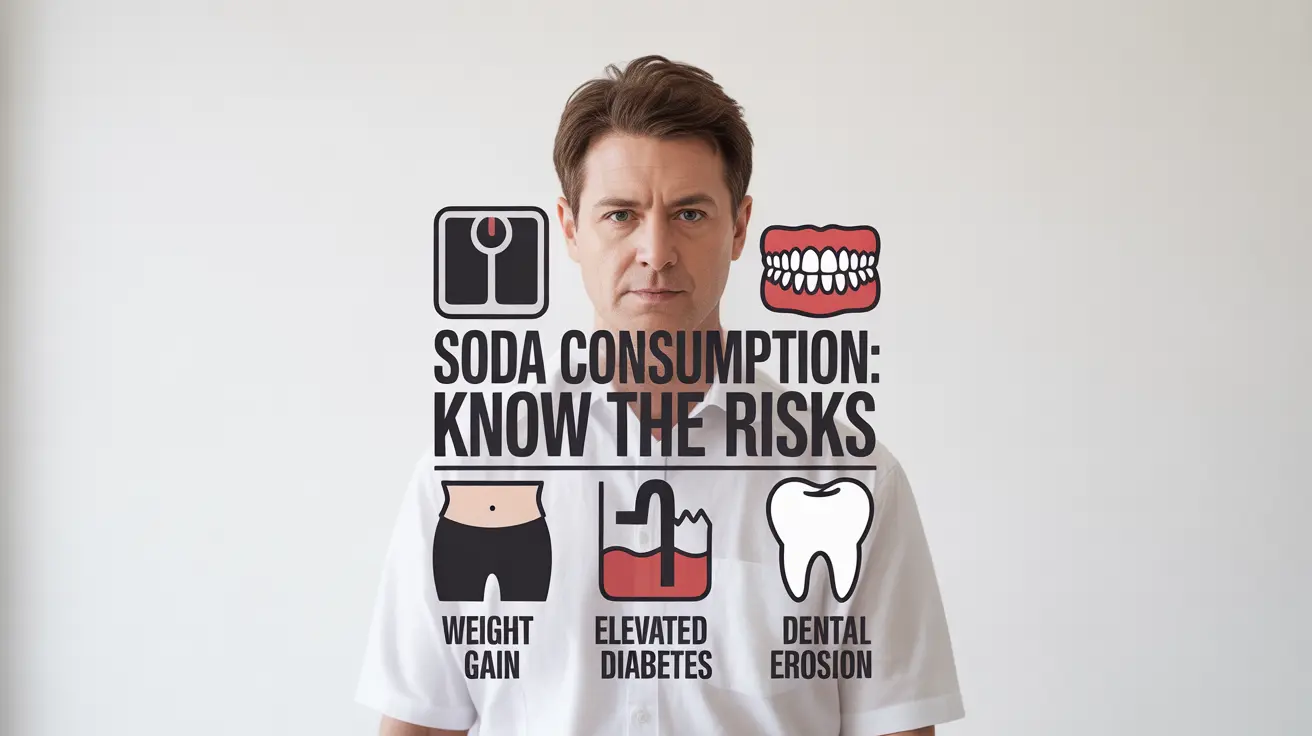Soda has become a staple beverage in many people's daily lives, but its impact on health has raised significant concerns among medical professionals and researchers. Understanding the effects of regular soda consumption is crucial for making informed decisions about your dietary choices and overall well-being.
From weight management to dental health, the implications of drinking soda extend far beyond just empty calories. Let's explore the various ways soda consumption can affect your health and why medical experts recommend limiting its intake.
The Impact of Soda on Body Weight and Metabolism
Regular soda is loaded with added sugars, typically containing 7-10 teaspoons of sugar per 12-ounce serving. This high sugar content directly contributes to weight gain and metabolic disruptions in several ways:
- Empty calories with no nutritional value
- Rapid blood sugar spikes
- Increased appetite and cravings
- Reduced feeling of fullness
- Higher daily caloric intake
Research shows that people who regularly consume sugary sodas are more likely to experience significant weight gain and have a higher risk of developing obesity compared to those who don't drink soda.
The Connection Between Soda and Diabetes Risk
The relationship between soda consumption and type 2 diabetes is particularly concerning. The excessive sugar load from regular soda consumption can lead to:
- Insulin resistance
- Chronic inflammation
- Pancreatic stress
- Elevated blood glucose levels
Even diet sodas, despite containing no sugar, have been associated with an increased risk of type 2 diabetes through mechanisms involving artificial sweeteners and their effects on glucose metabolism.
Cardiovascular Health Concerns
Regular soda consumption has been linked to various cardiovascular issues:
- Increased blood pressure
- Higher risk of heart disease
- Elevated triglyceride levels
- Greater likelihood of metabolic syndrome
The combination of added sugars and other ingredients in soda can contribute to inflammation and oxidative stress, both of which are risk factors for heart disease.
Effects on Dental and Bone Health
Soda poses significant risks to both dental and skeletal health:
Dental Impact
- Erosion of tooth enamel
- Increased cavity formation
- Dental sensitivity
- Tooth decay
Bone Health Concerns
- Decreased calcium absorption
- Higher risk of osteoporosis
- Reduced bone mineral density
- Increased fracture risk
The phosphoric acid in soda can interfere with calcium absorption and contribute to bone density loss over time, particularly in regular consumers.
Frequently Asked Questions
Is drinking soda bad for your health and why?
Yes, drinking soda is detrimental to health due to its high sugar content, artificial additives, and zero nutritional value. It contributes to weight gain, diabetes risk, cardiovascular problems, and dental issues while displacing healthier beverage choices from your diet.
How does soda consumption affect weight and risk of obesity?
Soda significantly increases obesity risk by providing excessive empty calories, triggering blood sugar spikes, disrupting hunger signals, and encouraging overconsumption of calories. One regular soda daily can add up to 15 pounds of weight gain per year if not offset by other dietary changes.
Can regular or diet soda increase the risk of type 2 diabetes?
Both regular and diet sodas are associated with increased type 2 diabetes risk. Regular soda's high sugar content directly impacts blood glucose levels and insulin sensitivity, while diet soda's artificial sweeteners may affect glucose metabolism and gut bacteria balance.
What are the effects of soda on heart health and risk of heart disease?
Soda consumption is linked to increased heart disease risk through multiple mechanisms, including elevated blood pressure, inflammation, higher triglyceride levels, and metabolic disruptions. Regular consumption can significantly impact cardiovascular health over time.
Does drinking soda harm teeth and bone health, and how can it be prevented?
Yes, soda damages teeth through acid erosion and sugar exposure, while also potentially weakening bones by interfering with calcium absorption. Prevention strategies include limiting soda intake, using straws, rinsing with water after consumption, and maintaining good dental hygiene practices.




